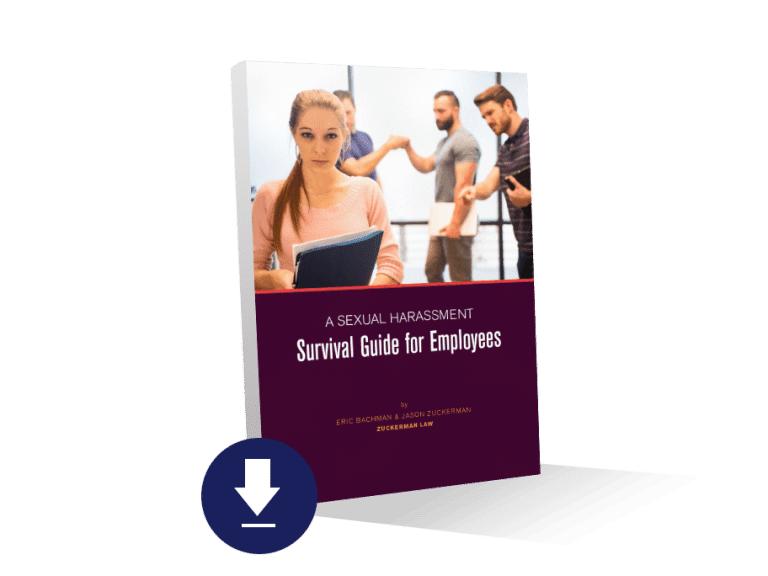Sexual harassment is actionable under a hostile work environment theory when the harassing conduct is “sufficiently severe or pervasive ‘to alter the conditions [of the victim’s] employment and create an abusive working environment.’ ” Meritor Sav. Bank, FSB v. Vinson, 477 U.S. 57, 67 (1986).
In order to qualify for sexual harassment, the underlying acts must be severe or pervasive. A single act of severe harassment, such as a sexual assault, is actionable under Title VII of the Civil Rights Act. To determine whether harassment violates Title VII, courts consider the following factors:
- the frequency of the discriminatory conduct;
- its severity;
- whether it is physically threatening or humiliating, or a mere offensive utterance; and
- whether it unreasonably interferes with an employee’s work performance.
A recent Fourth Circuit decision clarifies the scope of actionable sex harassment:
Title VII makes it unlawful for an employer “to discriminate against any individual with respect to his compensation, terms, conditions, or privileges of employment, because of such individual’s . . . sex . . . .” 42 U.S.C. § 2000e-2(a)(1). Title VII is violated “[w]hen the workplace is permeated with discriminatory intimidation, ridicule, and insult that is sufficiently severe or pervasive to alter the conditions of the victims’ employment and create an abusive work environment.” Harris v. Forklift Sys., Inc., 510 U.S. 17, 21 (1993) (internal citations omitted). To establish a prima facie case of sexual harassment based on a hostile work environment, a plaintiff must prove (1) unwelcome conduct; (2) based on the plaintiff’s sex; (3) sufficiently severe or pervasive to alter the plaintiff’s conditions of employment and create an abusive work environment; and (4) that is imputable to the employer. Okoli v. City of Baltimore, 648 F.3d 216, 220 (4th Cir. 2011). “Conduct is ‘unwelcome’ when it continues after the employee sufficiently communicates that it is unwelcome.” Albero v. City of Salisbury, 422 F. Supp. 2d 549, 557–58 (D. Md. 2006) (citing Scott v. Ameritex Yarn, 72 F. Supp. 2d 587, 591 (D.S.C. 1999)). “Establishing the third element requires that the plaintiff show that the work environment was not only subjectively hostile, but also objectively so.” Bonds v. Leavitt, 629 F.3d 369, 385 (4th Cir. 2011). To determine whether an environment is hostile, the Court must look at all the circumstances, which “may include the frequency of the discriminatory conduct; its severity; whether it is physically threatening or humiliating, or a mere offensive utterance; and whether it unreasonably interferes with an employee’s work performance.” Harris, 510 U.S. at 23.
Zuckerman Law represents victims of sexual harassment in Washington DC, Maryland, and Virginia. For a free confidential consultation, contact us at 202-262-8959.
Client Reviews of Sex Harassment Lawyer Jason Zuckerman
We are proud of our commitment to exceptional client service, including our prompt response to all client inquiries and zealous advocacy for victims of harassment. Recently Avvo awarded Jason Zuckerman its Client Choice Award based on client reviews. The following two reviews were provided by former clients of Jason Zuckerman concerning sexual harassment matters:
“I truly can’t say enough good things about Jason and his team – they are incredibly effective, professional, and consistently wonderful to work with, even in very high-pressure circumstances. Jason and his colleagues were exceptionally patient with and responsive to my concerns, consulting with me on every step of the process and explaining different options. Beyond their impeccable legal representation and client advocacy, I also felt personally cared for and supported during what was a particularly nightmarish experience of workplace harassment. When needed, they also devoted significant extra time and effort to my case to ensure that my interests were protected. I am incredibly grateful for their representation and wholeheartedly recommend Zuckerman Law to anyone seeking justice in employment-related matters.”
“When I sought out a DC-based attorney to represent me, I expected a competent attorney who would get me through my sexual harassment lawsuit. What I didn’t expect was to find someone like Jason: a truly outstanding attorney who made me feel like a priority, paid close attention to detail, and brought enormous expertise to the table. I chose to hire Jason to represent me after consulting seven other lawyers — and from day one, Jasonwas the only one who it clear that he actually cared about me and my case. I cannot be happier that I chose Jason. He represented me with professionalism and fearlessness every step of the way. Jason always made me feel like a priority, even though he was busy with other cases/clients simultaneously. He never rushed me or pressured me, and kept me “in the loop” the entire time while we were dealing with the opposing side.”









